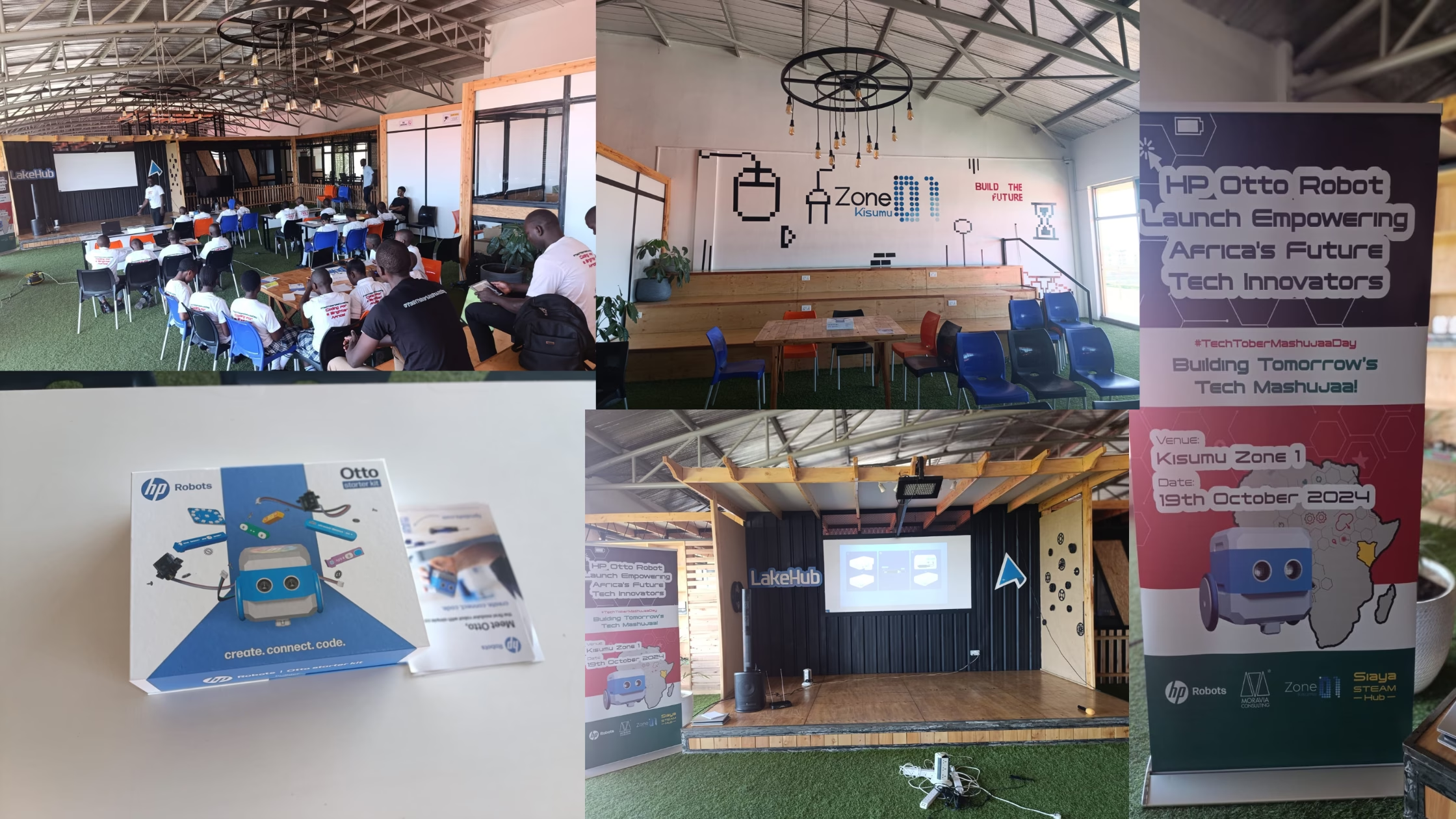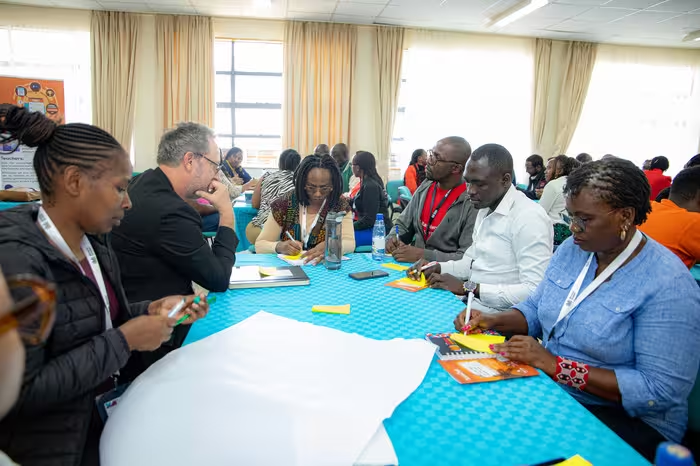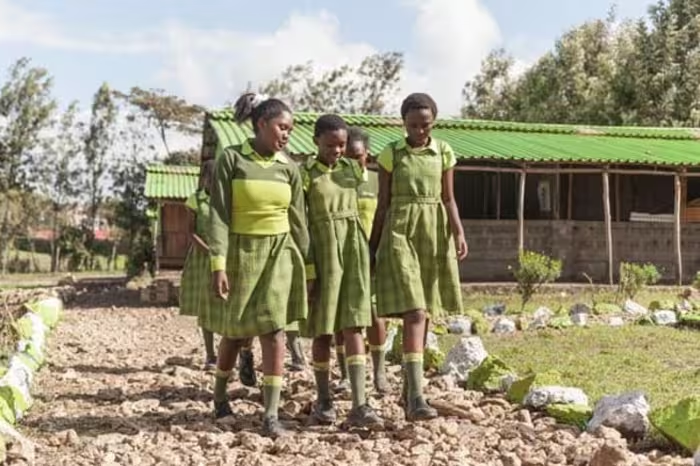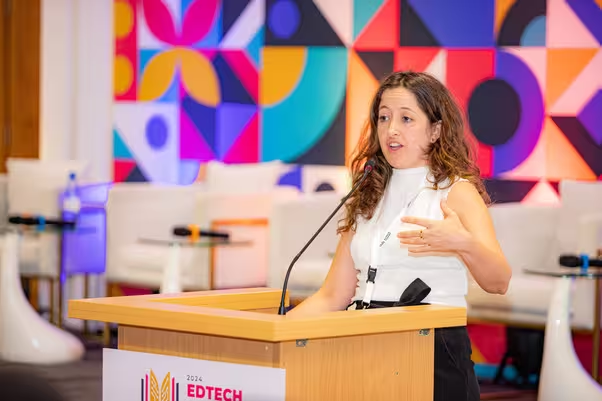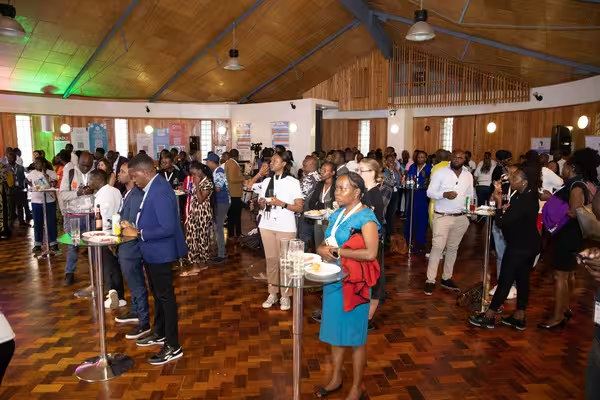By Juliet Awuor
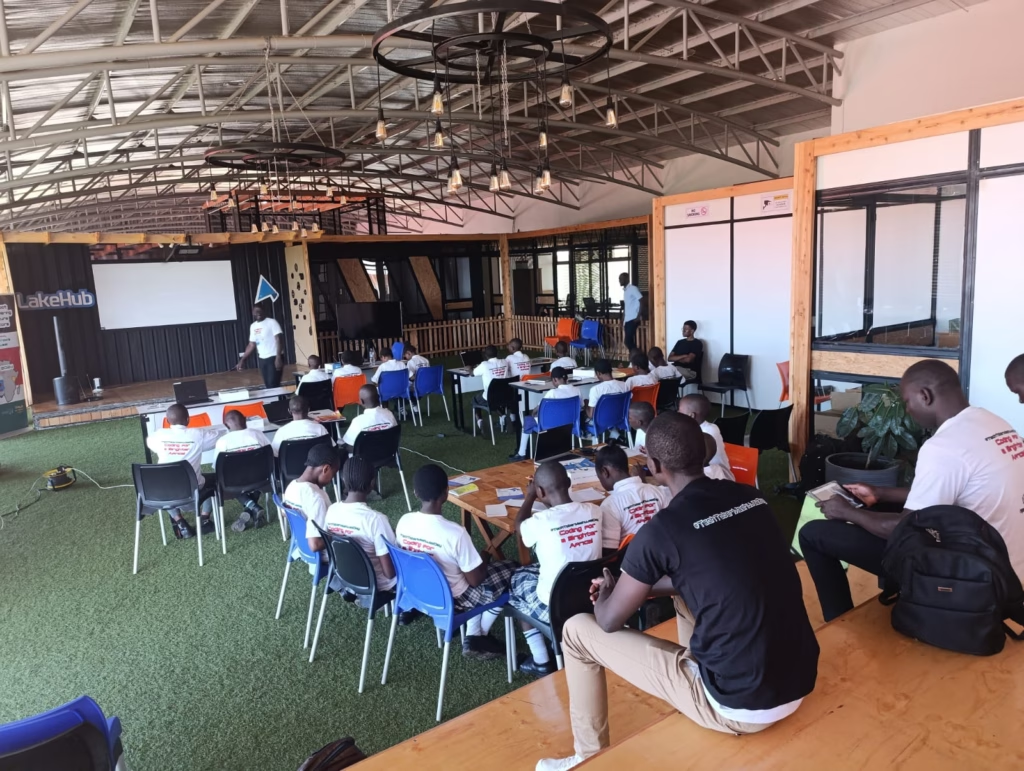
“You want to go fast; go alone; but if you want to go further, go with others.” This powerful philosophy came to life during the #TechToberMashujaaDay event held on Saturday, October 19, at Zone 01 in Kisumu. Organized by Siaya STEAM Hub, led by Moses Okoth, and supported by HP Robots, this exciting event brought together primary and junior high school learners to explore the world of robotics.
Each group of 6–8 students received a box of unassembled parts and was tasked with assembling an Otto Robot. Using computational thinking, design thinking, and critical thinking, the students worked collaboratively, learning to follow provided instructions, solve problems, and build confidence in STEM-related skills.
“Technology is advancing at a supersonic speed internationally,” said Moses Okoth. “In agriculture, for example, people are using drones and apps to improve yields. Yet here in Kenya, many students are still learning traditional farming methods through the same old agricultural clubs.”
Agricultural clubs have long played a crucial role in Kenyan schools, teaching students the fundamentals of farming, sustainability, and food security. These clubs instil valuable skills such as patience, responsibility, and an understanding of natural cycles—knowledge that remains essential in an agricultural economy like Kenya’s. However, as global agriculture evolves with technology, there is a need to modernize these clubs to better prepare students for the future.
Integrating emerging agricultural technologies into school programs helps students gain hands-on experience with modern farming tools. For instance, agricultural clubs could introduce drone-based crop monitoring, precision irrigation systems, smart greenhouses, and mobile apps that analyze soil health. These innovations would make learning more engaging and equip students with the knowledge needed to bridge the gap between traditional and modern farming practices.
By blending tradition with technology, agricultural clubs can continue to nurture young agripreneurs while embracing innovations that enhance efficiency and productivity. Instead of replacing traditional farming lessons, technology can complement them—equipping students with the skills needed to become future-ready agricultural leaders in Kenya and beyond. And where better to introduce technology-driven learning than in rural areas, where agriculture remains the primary source of livelihood?
Through hands-on activities like assembling the Otto Robot, Moses hopes to inspire a new generation to embrace STEAM (Science, Technology, Engineering, Arts, and Mathematics) subjects. He emphasized the value of letting students figure things out for themselves, guided by an instruction manual with every robot kit.
This event marked the first time HP Otto Robots were introduced in Kenya. Moses partnered with Jan Patloka, the product manager at Moravia Consulting in the Czech Republic, to make this dream a reality. Initially sceptical, Jan admitted, “When Moses reached out to introduce Otto Robots to Kenyan schools, I thought it was a joke. But after months of communication, I trusted his strategy.”
Jan expressed optimism about expanding the use of Otto Robots in Kenyan schools. “We look forward to introducing the Otto Robot in more schools—not all, but some,” he added.
The Otto Robot is specifically designed to be user-friendly for STEM education. Its inclusion in the #TechToberMashujaaDay event showcased its potential to impact how Kenyan students learn technology and robotics significantly.
Jan also donated Virtuali-Tees from Curiscope to the schools in attendance. A Virtuali-Tee is a T-shirt designed to make learning about the human body interactive and immersive. Using augmented reality (AR) technology, the shirt works with a mobile app to create a virtual experience where users can explore organs, systems, and anatomical structures in 3D. Scanning the T-shirt with a smartphone or tablet, students can see inside the human body, interact with different organs, and engagingly learn about their functions. This innovative tool is useful for educators looking to make biology lessons more hands-on and visually captivating. The learners, together with their teachers, had fun testing the technology.
The event also introduced many, including myself, to the vibrant tech community at Zone 01 in Lake Basin Mall. This co-working space hosts various technology-related events, providing a platform for innovation and collaboration in Kisumu. Collaboration remains a core value for us at EdTech East Africa, so we had to respond to Moses by supporting his event.
As we reflect on the success of this event, it’s clear that partnerships and community efforts can spark meaningful change. The team of volunteer teachers, Moses Okoth, and international collaborators like Jan Patloka exemplify the spirit of going further together.
The #TechToberMashujaaDay event was a step forward in empowering Kenyan students to dream bigger and prepare for a tech-driven future. Here’s to many more opportunities for learners to build, innovate, and thrive in STEAM fields!
